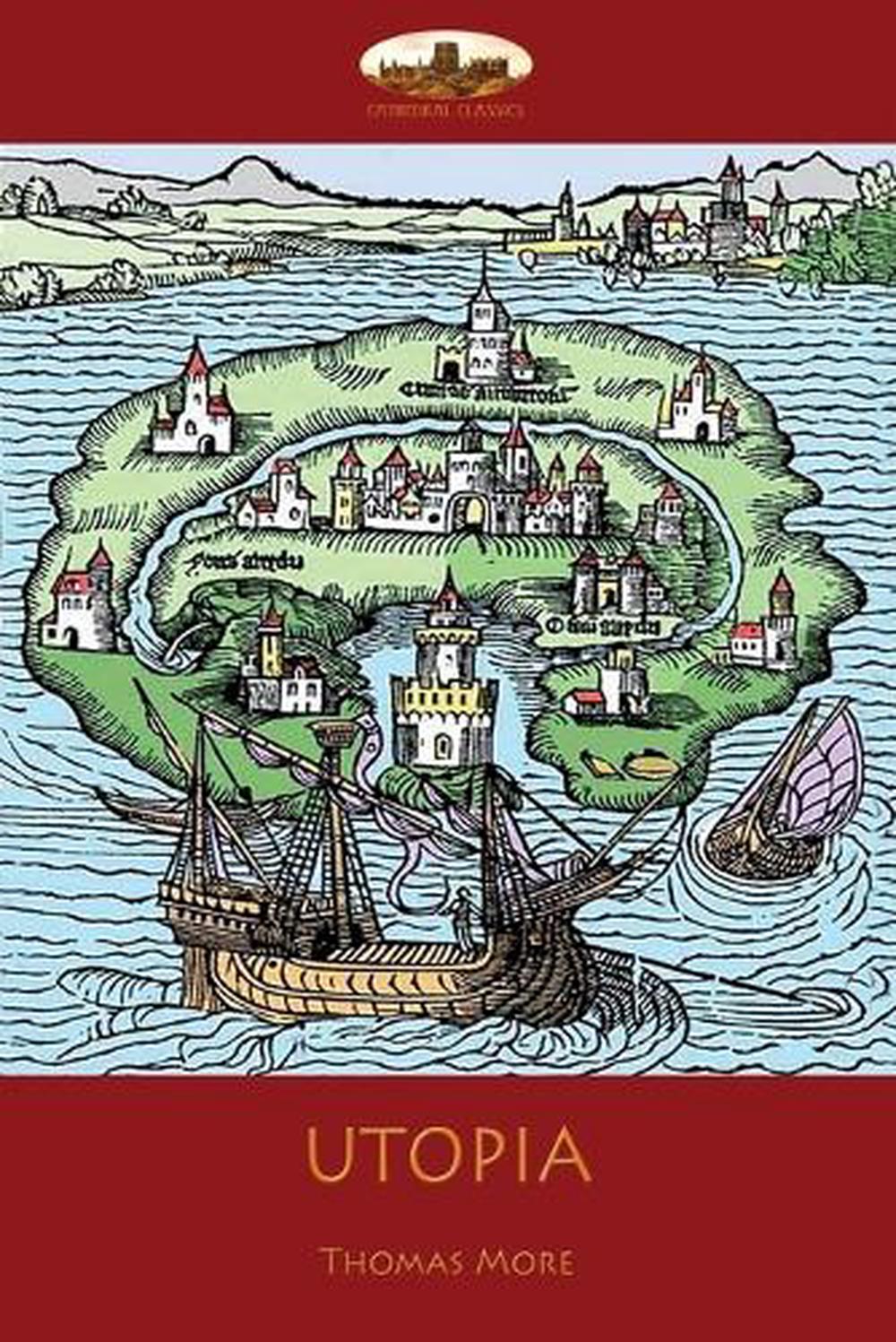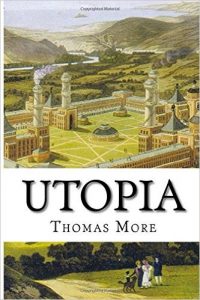This is the fourth and final post in a series on St. Thomas More’s Utopia.
You
can find the first post here.
Third
post here.
This
brings Utopia to a close with my Goodreads review.
Goodreads
Review
Ultimately this grew to a rating of three and a half stars but I rounded down. It grew to that (it could have been lower) because I think I finally understood it, but even now I have some lingering doubts. Even if I do understand it correctly, I think there is an inherent flaw that prevents me from a higher rating.
First, it was only after I understood Thomas More’s life leading to the writing of Utopia did I find that so much of his prior experiences are developed in the book. He spent part of his early life living with religious clerics and even at a monastery, and he writes of the Utopians’ religious practices. He was well educated, especially in the classics, and he writes of the Utopians’ love of education and classical philosophy. He was a member of parliament, and brings up the Utopians’ civil organization. He was a sheriff and lawyer, and he brings up the Utopians’ justice and jurisprudence. He was a legal representative for merchants across international barriers, and he speaks of the Utopians’ trade policies. He was in midlife at the time of the writing, having married, fathered four children, and lived through the passing of his wife in childbirth, and he writes on the Utopians’ household, marital, and social conventions. The only aspect of life he describes that he personally did not seem to personally experience was of the Utopians’ military practices. One assumes, though, that a man at the service of the king and parliament would have picked ideas on warfighting.
The key to understanding the book I think lies in understanding the mouthpiece for all of the Utopian practices. Despite Thomas More the author creating the character Thomas More in the book, the mouthpiece for the advocacy of Utopian life is the character Raphael Hythloday. Do Raphael Hythloday’s opinions and values represent the author’s? Or is Raphael Hythloday just a foil for More the author to knock down and satirize? The fact that he does not have his stand in be the mouthpiece should tell us something. Clearly there are passages that could not rationally be supported by More, but then there are passages that might. The ambiguity is perplexing.
Even the name Raphael Hythloday is ambiguous. Raphael alludes to the archangel, and so on one hand his name may be suggesting the bringing forth of divine wisdom. But Hytholday means (I am told) in classical Greek “speaker of nonsense.” So which is it, wisdom or nonsense?
I’m not going to get into the details here in a summary review but one over time can only come to the conclusion that Hythloday is at best an eccentric and at worst a kook. He advocates the Utopian practice of being married naked, and checking the body of one’s spouse as a prospective buyer checks out a horse. He advocates limiting the size of cities to a specific population, and that you need a passport to travel within the country. He says the Utopians economy is built on agriculture but yet most of the people don’t actually work, and those that do only work six hours per day. In what farming community could that possibly be true? It’s impossible. It’s nowhere!
So what are we to make the book? The book fails for me because it is impossible to distinguish what are serious propositions to improve society and what are “nonsense” ramblings of an eccentric old man, and if all is to be taken as nonsense ramblings, to what end? “Utopia” means “nowhere.” So why should we read about this nonexistent and not even possible ideal? Ultimately then it would be a farce, but the tone of the work doesn’t feel like a farce. Why should we go through a 134 pages of silly notions? Is More satirizing the Utopians? Is he satirizing the exploration writings that was becoming a formal genre in his day? Or is he satirizing philosophic treatises with kooky old Hythloday as a silly savant? Ultimately I can’t tell.
But
on a second read, I have to admit, I was entertained. Once I came to the conclusion that Hythloday
is just an oddball not to be taken seriously I enjoyed the zaniness of the
monologue. As a philosophic work, Utopia
has its issues. As a tongue-in-cheek
farce I found it a worthwhile read which allowed me to raise the rating.






